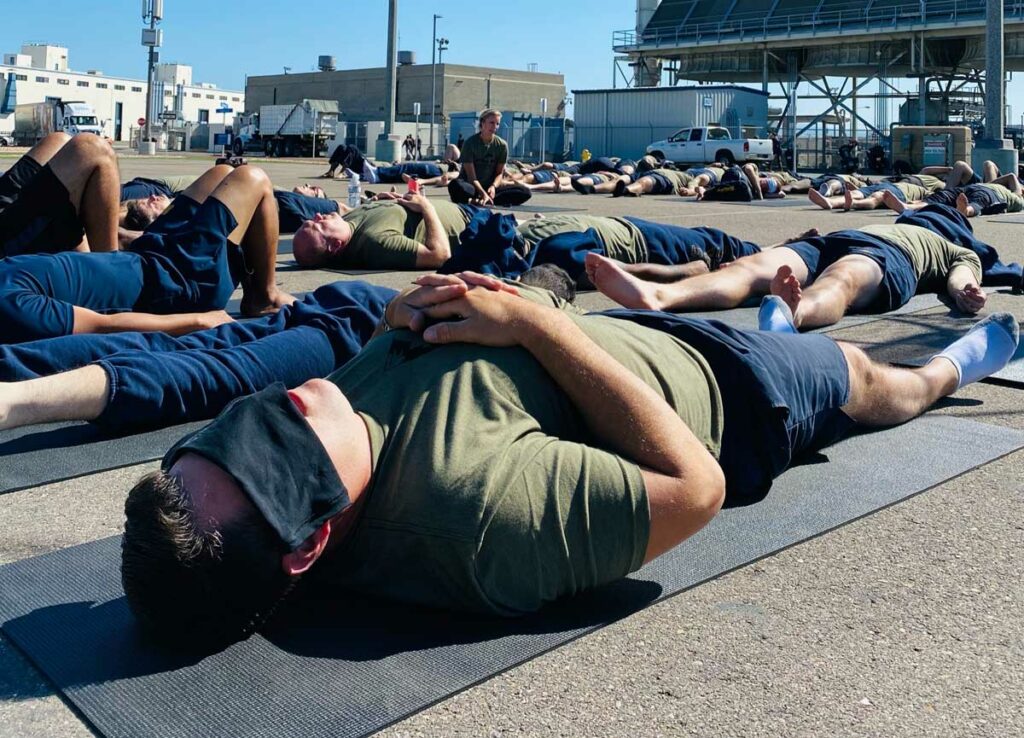Four signs shift work is impacting your sleep and health

via O2X
Shift work is disruptive to achieving optimal health; so much so that even the World Health Organization has taken notice. In the future, there may be federal and/or state mandates to limiting “working around the clock.”
- Addicted to Awake: Sleep Deprivation in the Fire Service
- I’ll Sleep When I’m Dead
- The Sleepless Heart of the Fire Service
- Sleep: A Missing Link to Cancer Prevention
In general, what makes shift work so disruptive is working around the (biological) clock. As humans, we’ve evolved to be active in the day and sleep at night. But then Thomas Edison and Henry Ford had to go and invent electricity and the concept of shift work, and modern life forever changed. Working around the (biological) clock is not fully possible. The sleep and wake signals of the biological clock are very strong and long lasting. Being awake when we should be sleep results in compromised performance and being asleep when we should be awake diminishes sleep quality.
Below are four signs that shift work is impacting your sleep and health. But all is not lost. There are ways to mitigate these signs and symptoms of shift work; we proactively preach all in the O2X curriculum.
Daytime Sleepiness
If you have a strong and uncontrollable desire to fall asleep while actively working during the day or even driving a car, stop and go take a 30-minute nap. Daytime sleepiness is the #1 sign of shift work interfering with one’s quality of life. It happens because of the active shifting of the alerting and sleeping signals from the biological clock that attempt to keep up with the abnormal sleep/wake schedule that shift work inevitably creates.
Insomnia at Bedtime
When we force our biological clock to constantly adjust and adapt to shift work, the physiological drive to sleep—which is usually very strong on the evening—becomes hijacked. We may be physically exhausted but that doesn’t mean our brain signal to sleep matches this physical desire to. One way to reduce insomnia is to practice one of the many bedtime relaxation techniques: iREST, breath work, progressive muscle tension and relaxation, and positive imagery.
Insomnia in the Middle of the Night
The underlying reason for insomnia in the middle of the night is the same for insomnia at bedtime. The strength of the physiological drive to sleep (or be awake) becomes compromised. When this happens, get up out of bed and go in another room. Don’t turn on the light or TV though and don’t dare pick up your phone. Instead engage in one of the bedtime relaxation techniques; when the urge to sleep becomes strong again, go back into the bedroom.
Premature Rise Time
Although the reason for waking up a few hours before you intend to happens—either directly because of shift work or seasonal changes in sunlight—this is more problematic to mitigate. But, going to bed early enough can help offset the daytime sleepiness you’ll inevitably experience; If you are able to fall asleep early but wake up early, at least you’ll have six hours instead of four hours of sleep.
The impact of shift work is all encompassing. It diminishes our work capacities; it decreases the amount of physical and cognitive loads we can handle at one time and across the day; it makes us cranky, tired, and exhausted; and it is linked to a whole host of gut, brain, and general health issues. Although shift work is here to stay, a power nap combined with a strict bedtime routine and an early-to-bed-early-to-rise mentality can help you continue to seize the day.
Allison Brager is a U.S. Army neuroscientist and O2X sleep specialist. As of April 2022, she currently sits as the deputy chief science officer at the John F. Kennedy Special Warfare Center and School. Allison’s Army career includes time at Walter Reed Army Institute of Research, where she and her teammates studied stressors that impact sleep, assisting on performance-related publications for the Office of the Army Surgeon General, becoming director of Human Performance Operations and Outreach Education for the U.S. Army E-Sports and Warrior Fitness teams, and authoring the book Meathead: Unraveling the Athletic Brain.
O2X Human Performance provides comprehensive, science-backed programs to hundreds of public safety departments, federal agencies, and the military. O2X works with clients to elevate culture, improve mental and physical wellbeing, support healthy lifestyles, and reduce healthcare costs associated with injuries and illnesses. Driven by results and cutting edge research, O2X programs are designed and delivered by a team of Special Operations veterans, high level athletes, and hundreds of leading experts in their respective fields of human performance.

